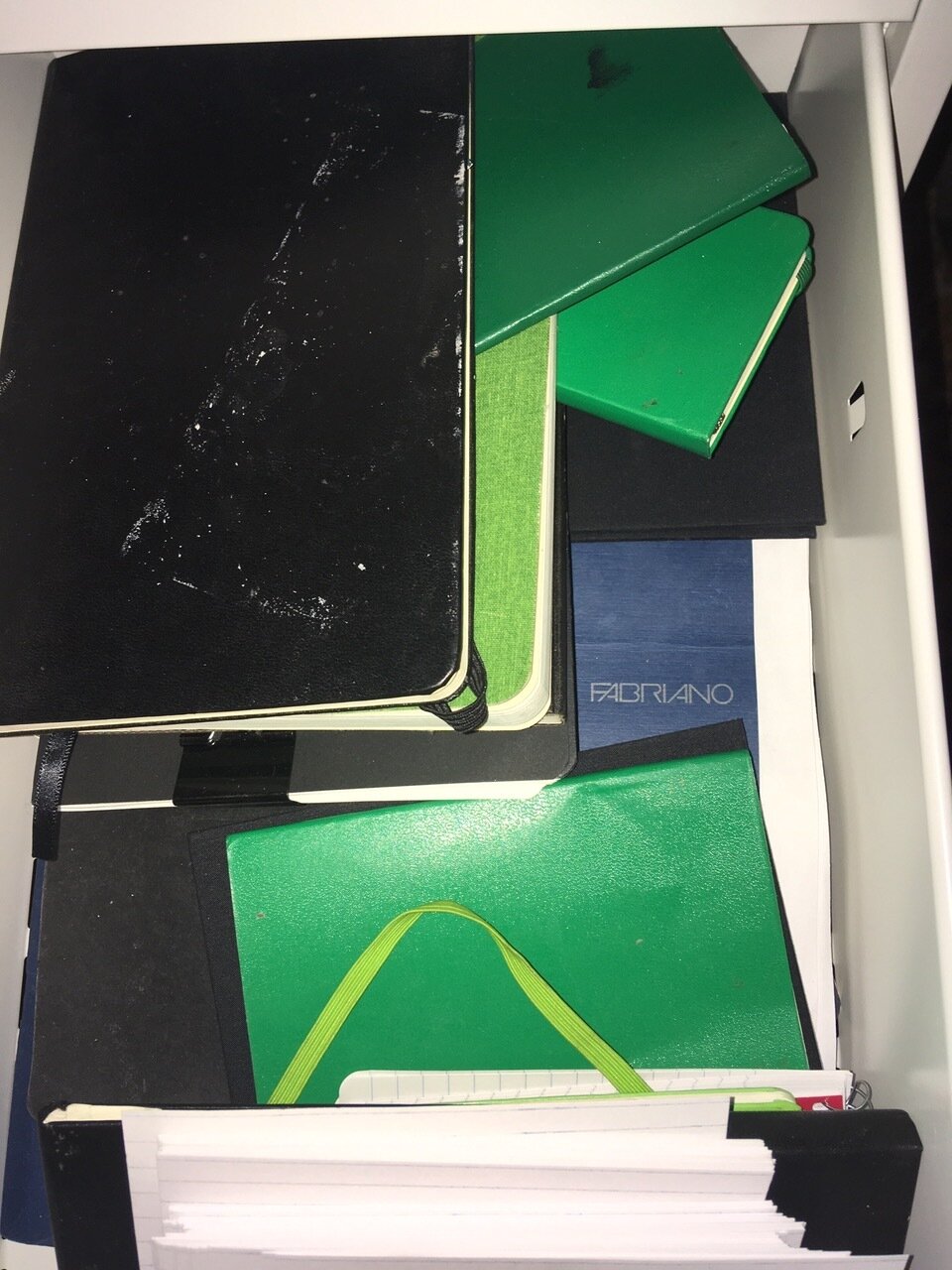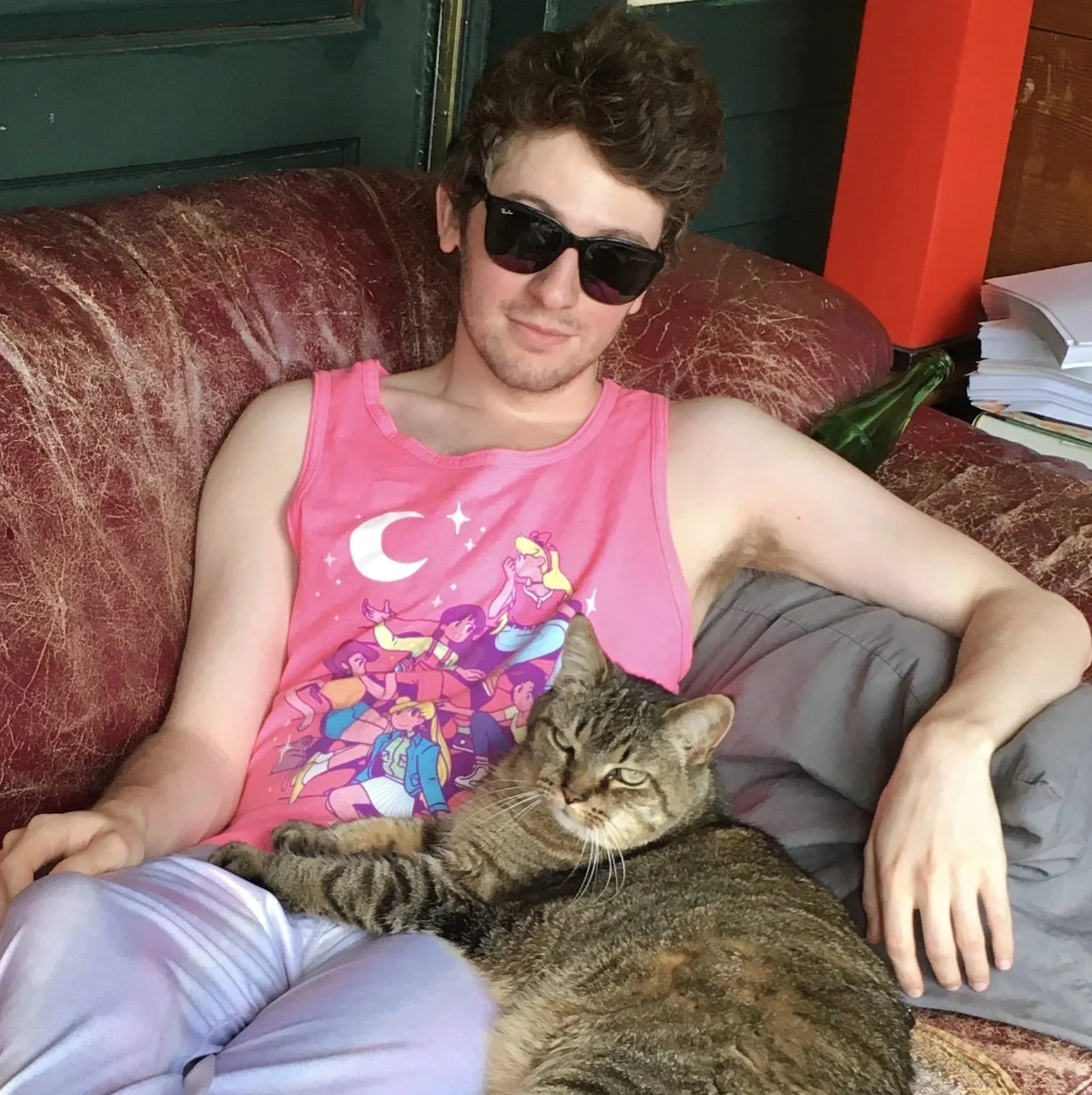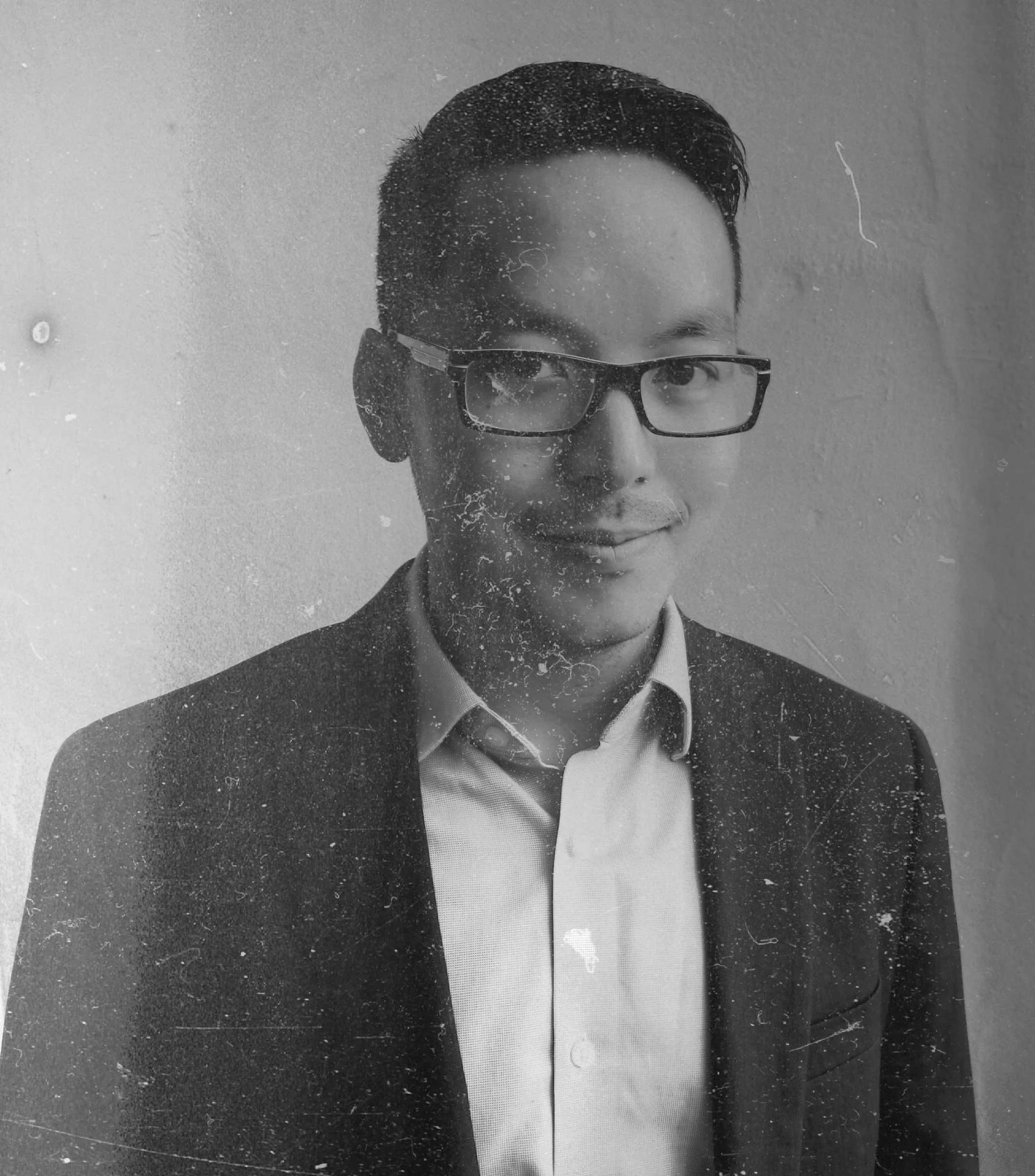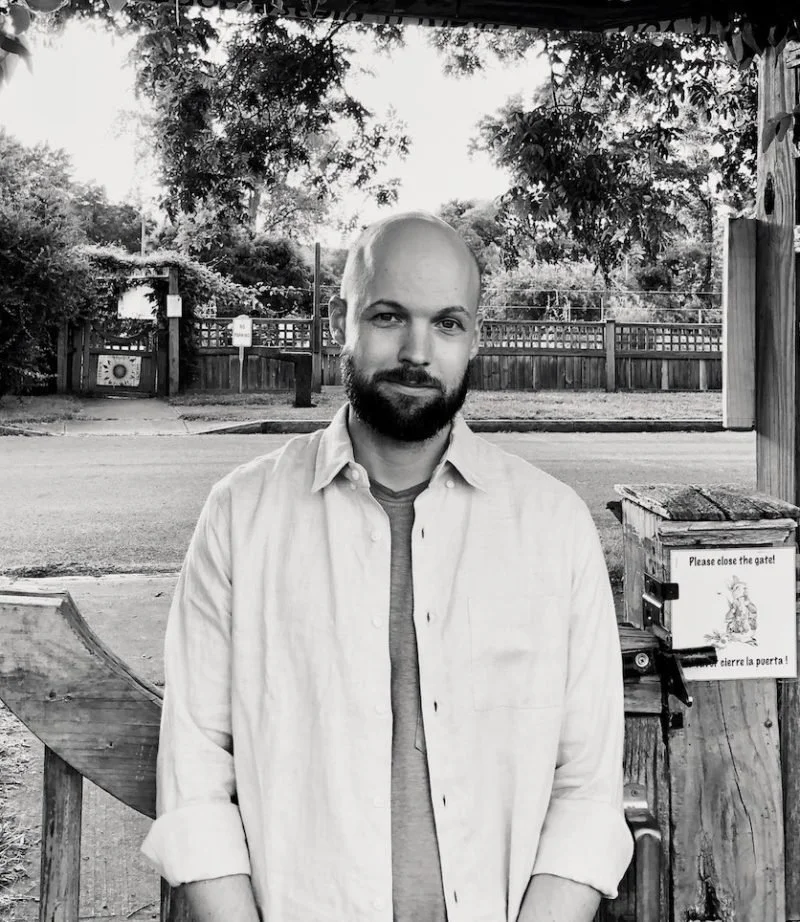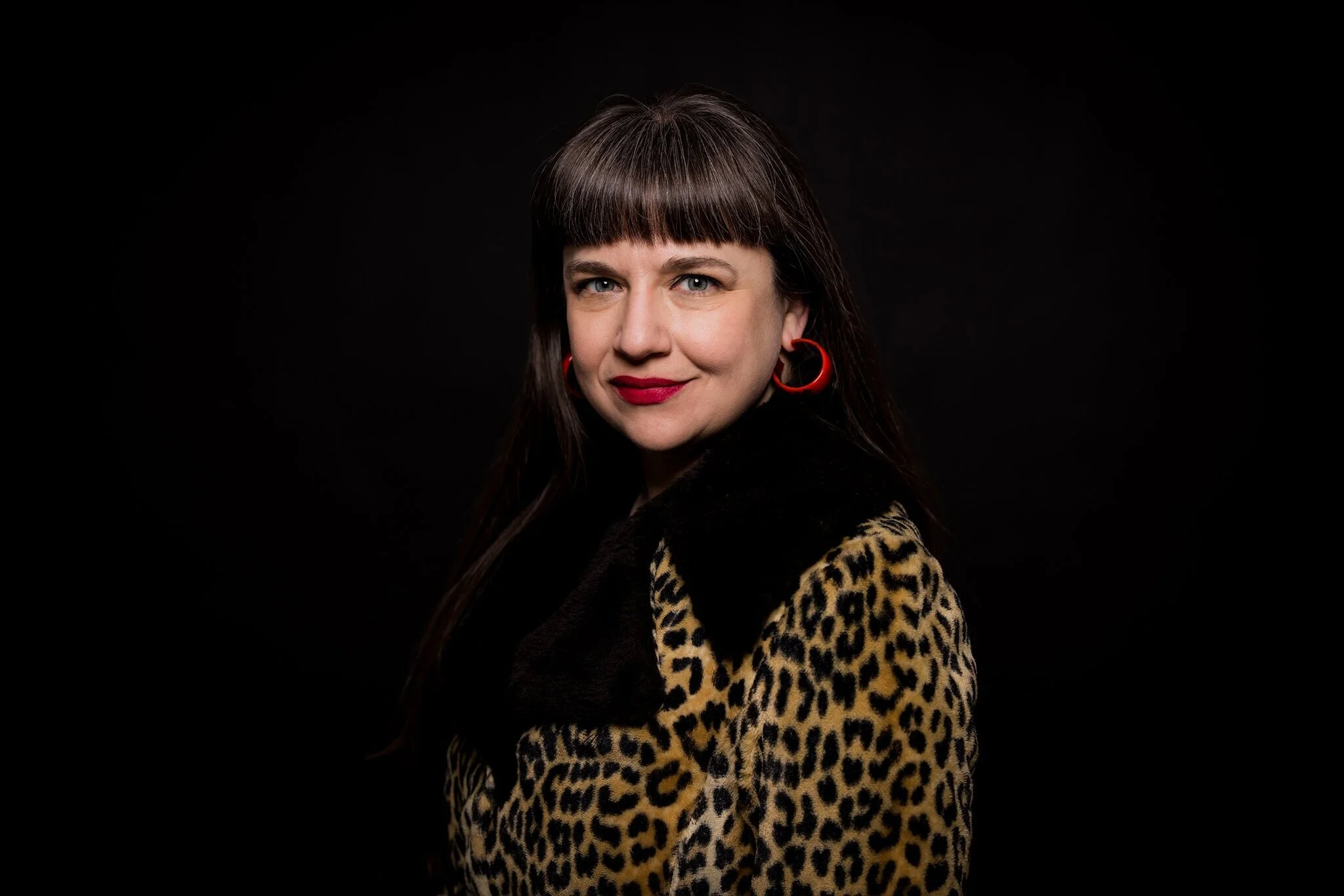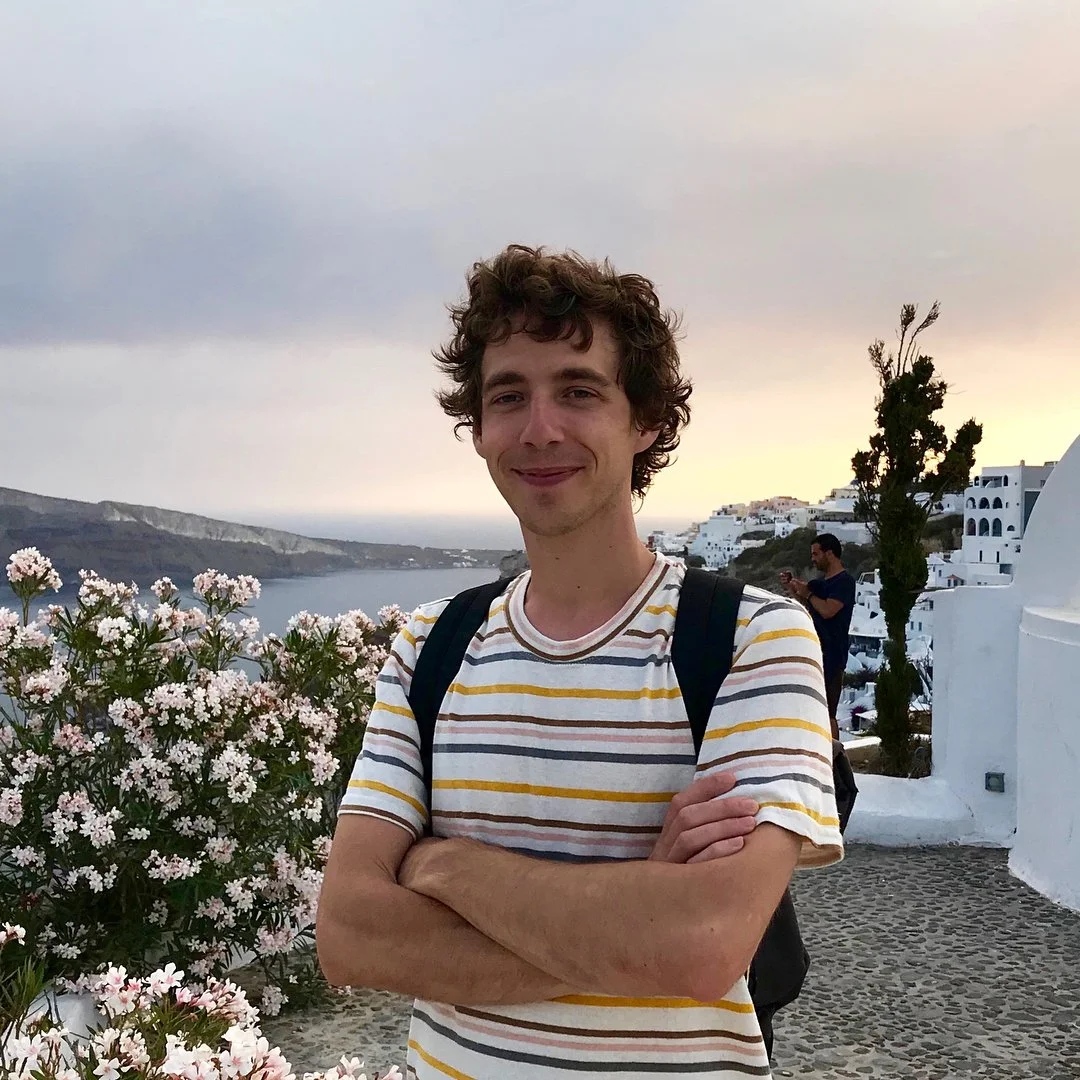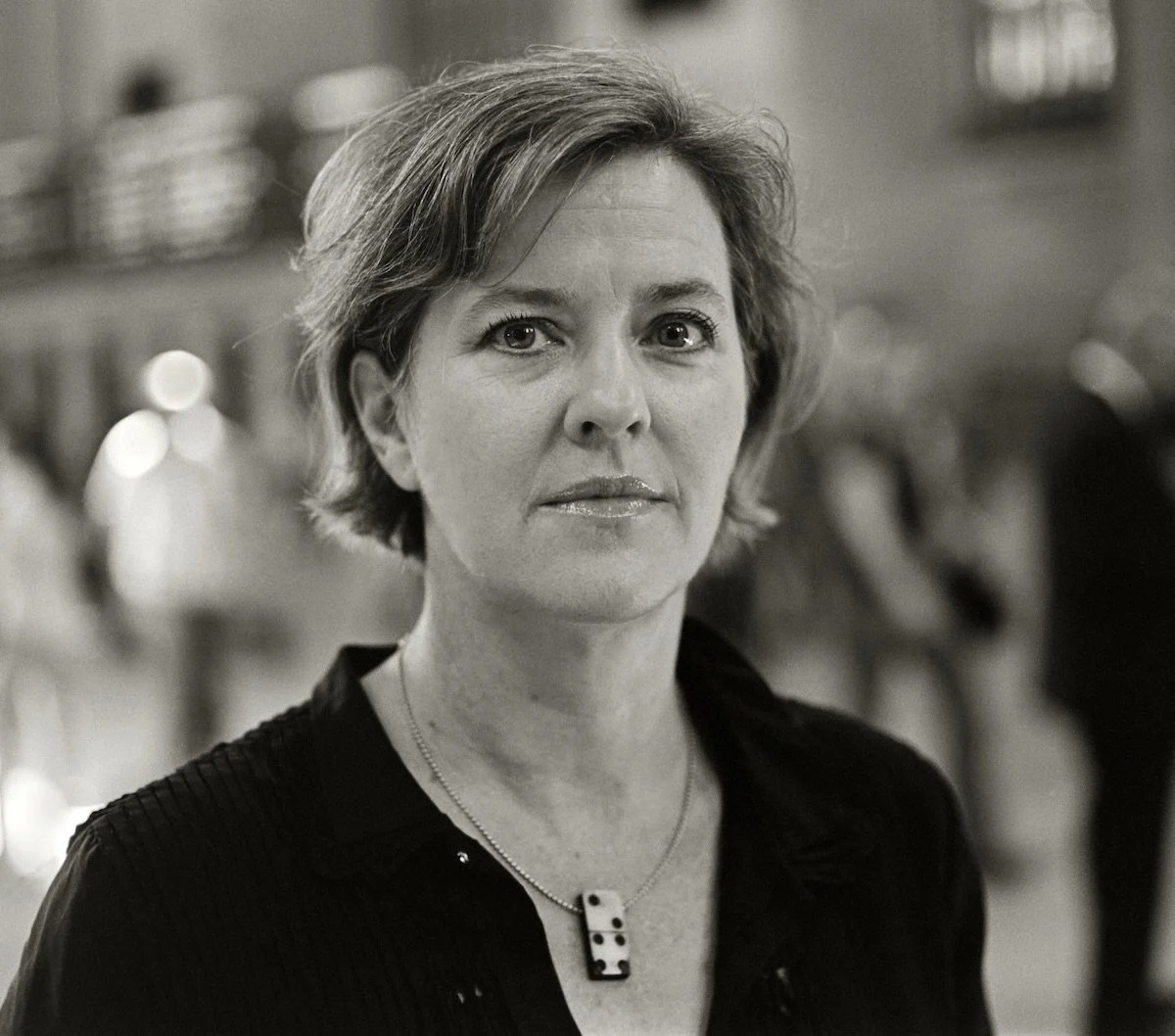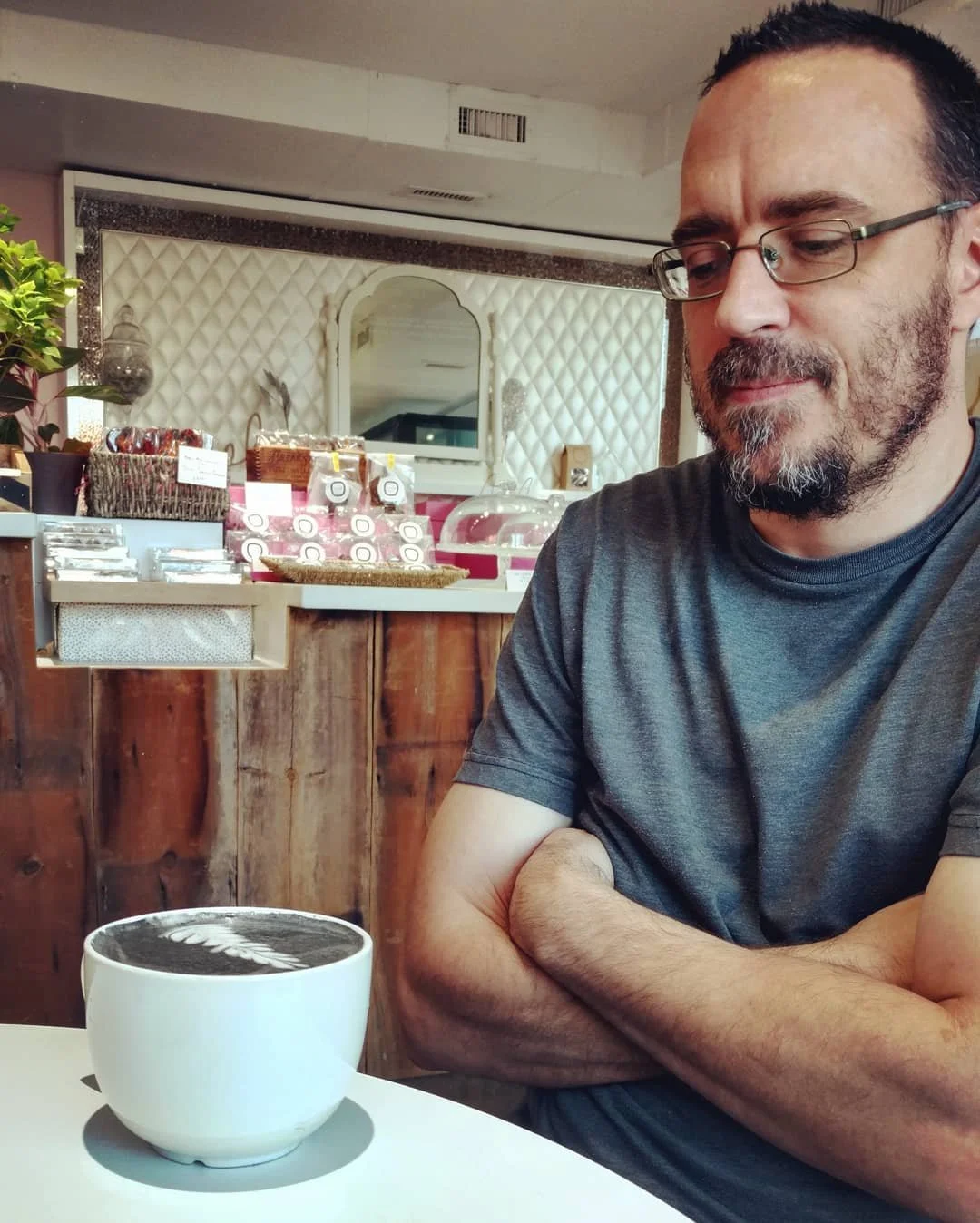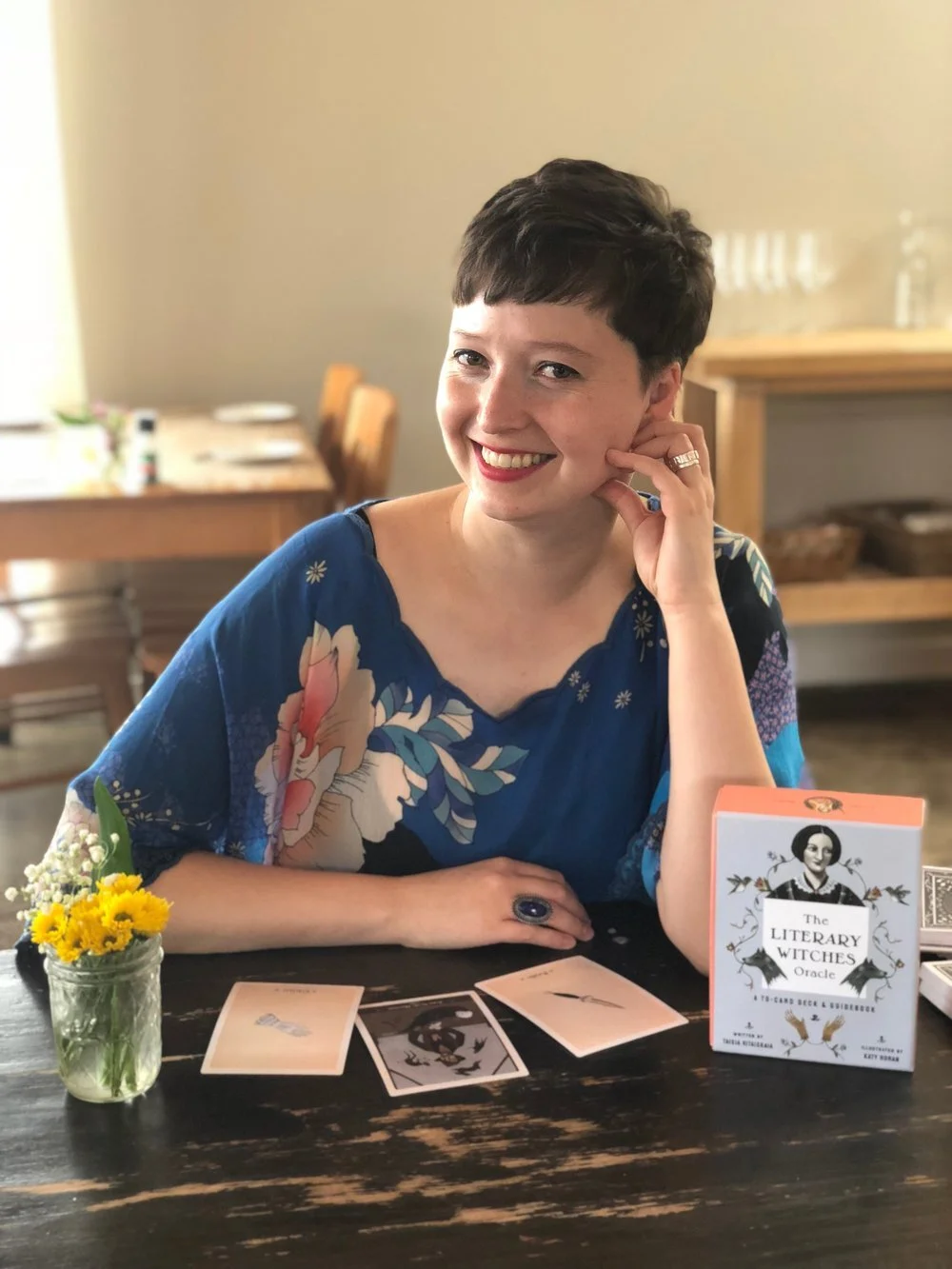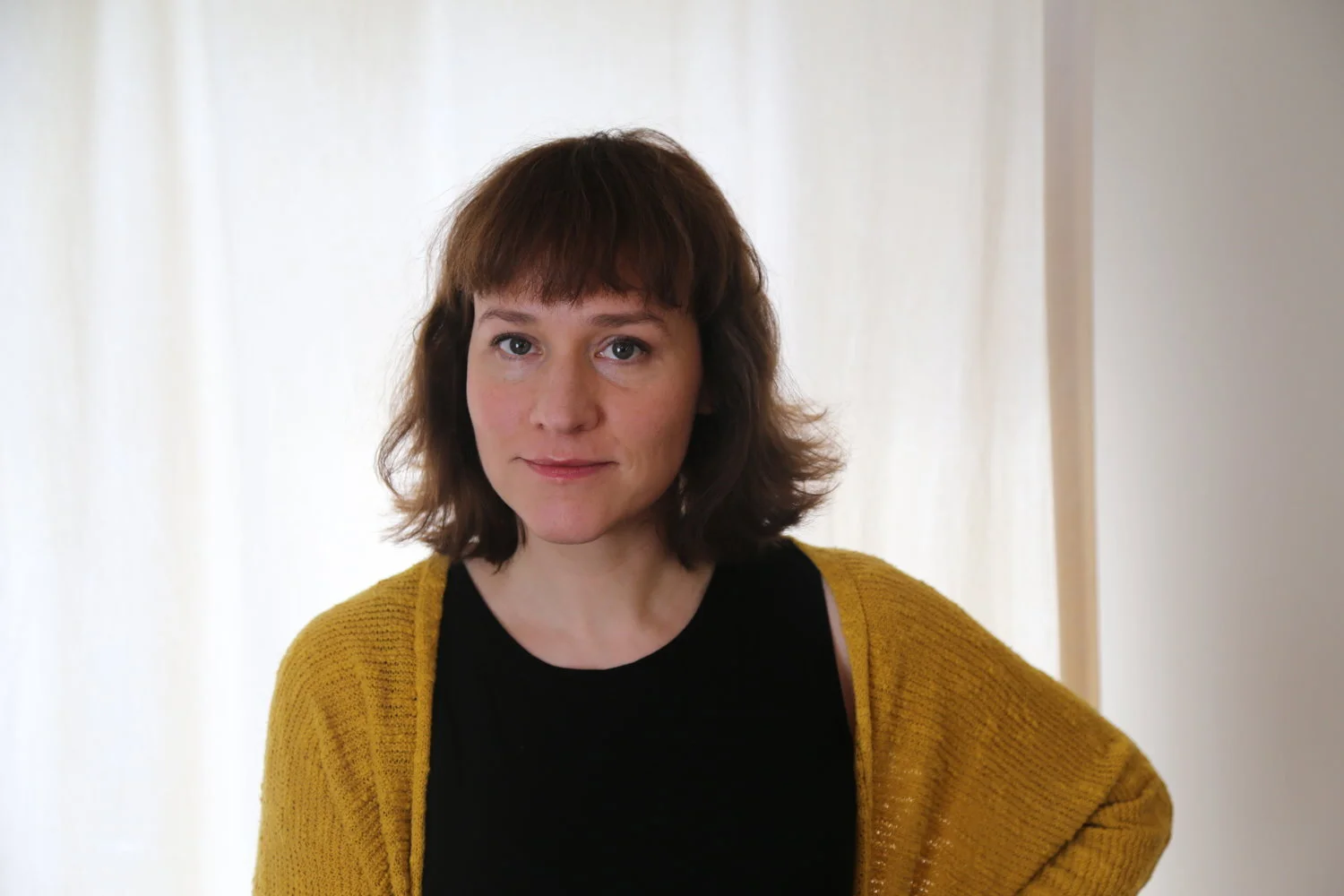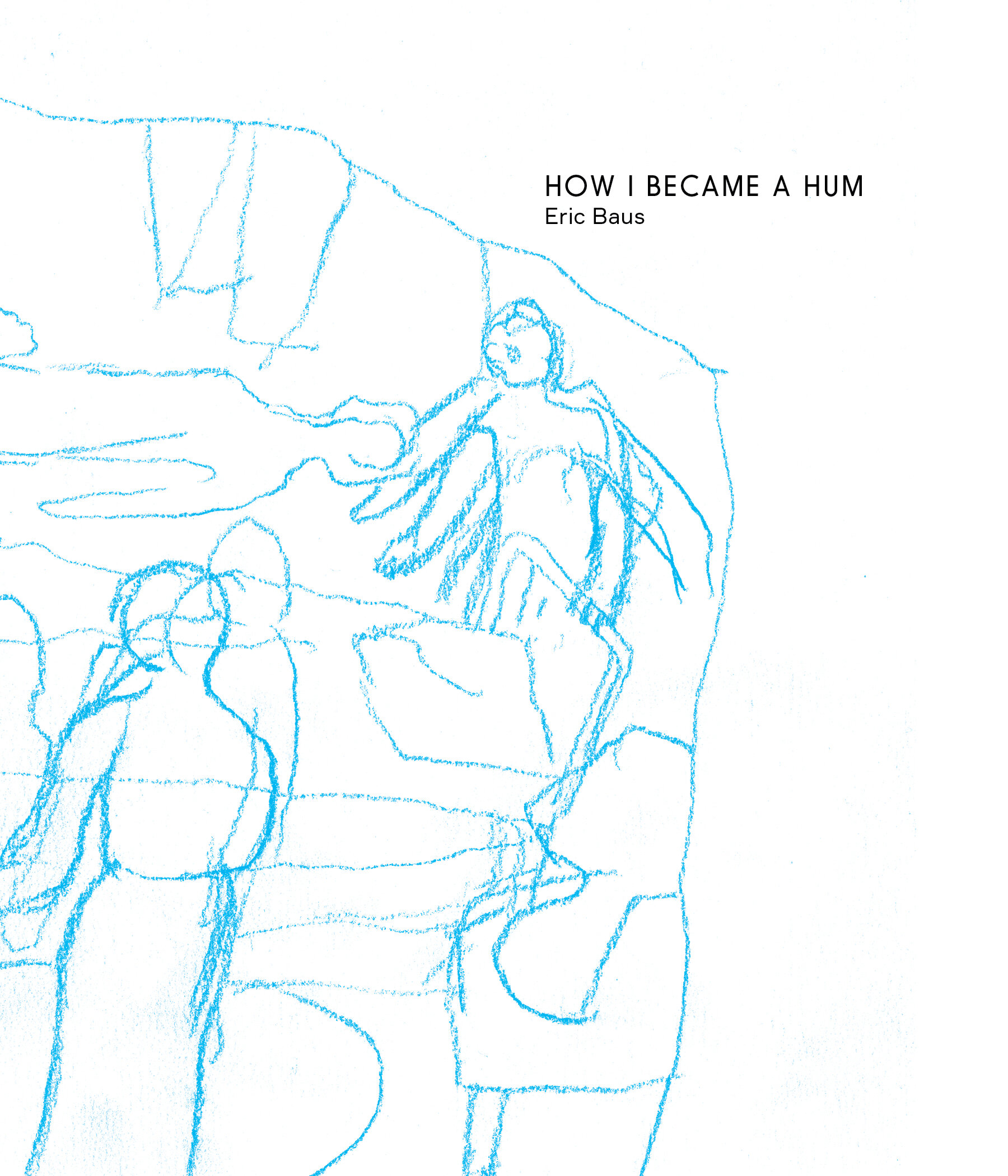

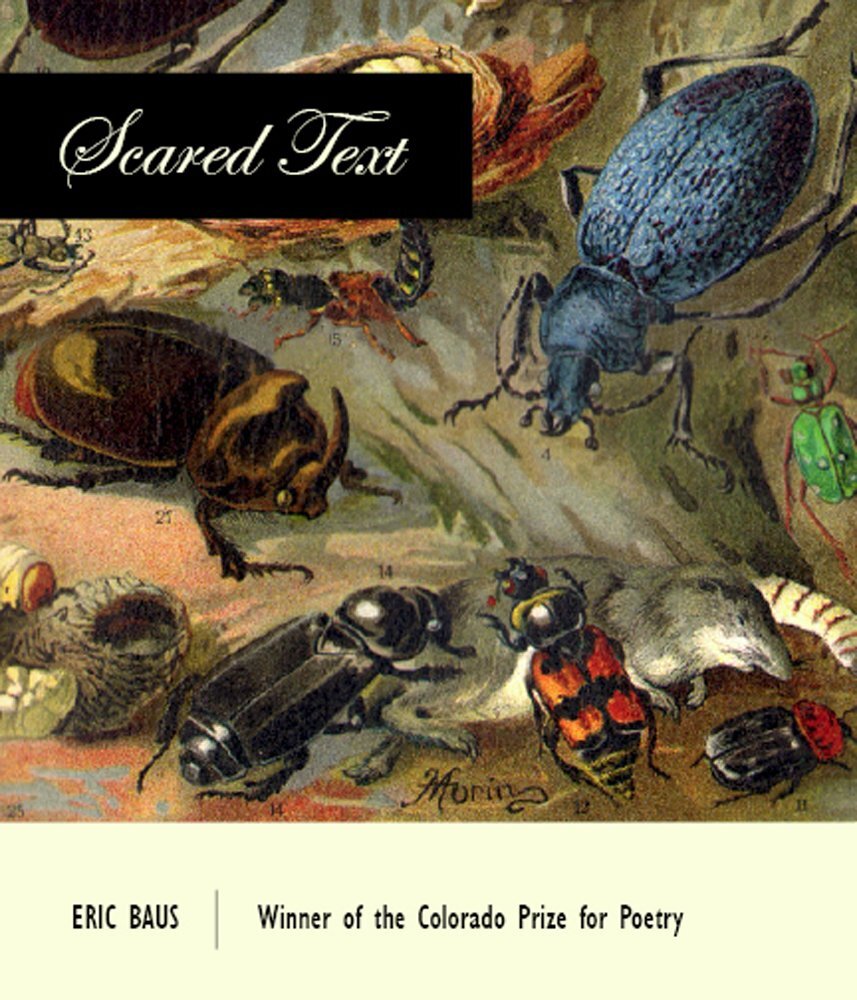
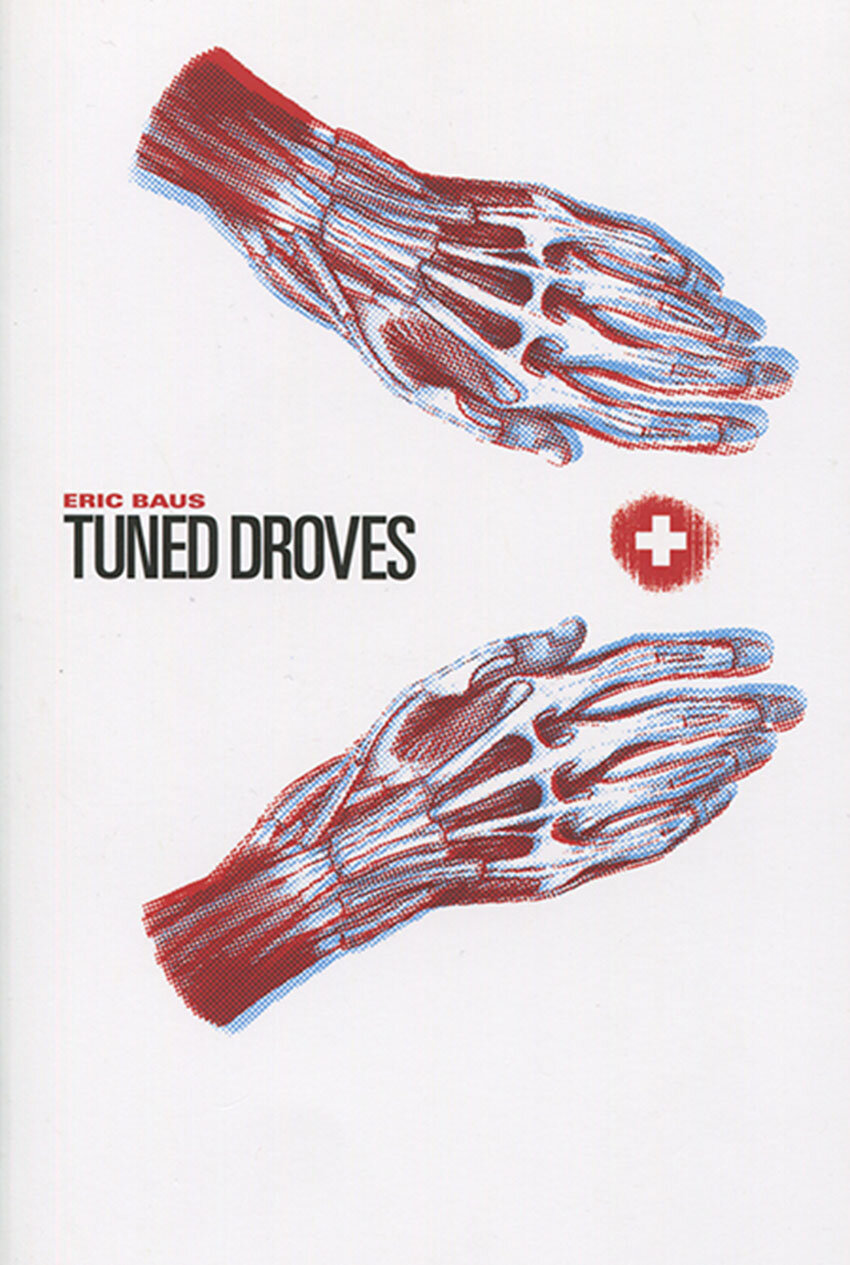
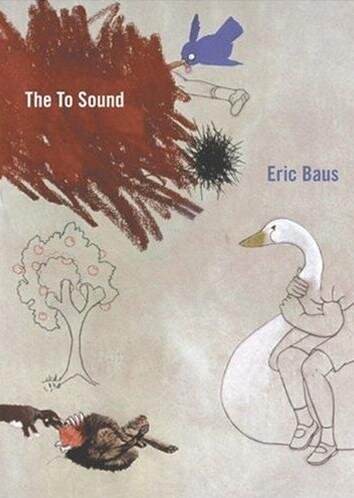
Eric Baus is the author of five collections of poetry: his debut in 2004 (The To Sound, Wave Books) and his most recent later this year (How I Became a Hum, Octopus Books). Baus combines the tongue-twisting lyric with the vivid image, the internal rhyme with the vibrant eye. Every poem begs to be read out loud. Like a prayer in a new language. Like a chant. Like a hum.
I spoke with the poet about his new book, surrealism, sound, multimedia disciplines, caring for cacti, a Dream Delivery Service, the kindness of strangers, and more!
via The Tranquilized Tongue (2014)
Let's begin with an icebreaker. If you could read the unpublished work of any poet (living or dead), who would it be any why?
Cesar Vallejo—because his writing is so alive and full of endlessness already.
Your books are so full of rhythm and music and repetition. I found myself reading each poem out loud as I read along, which is something I almost never do. Can you speak on the vocalization of your poetry? During your process, do you read certain drafts out loud?
I often record myself reading parts of poems aloud until they feel like they’re finished. It helps me to avoid tricking myself into mentally smoothing over parts that aren’t working while I re-read a draft silently. I try to avoid rigidity when I write while also moving toward a certain amount of rigor, especially when it comes to sound.
I'm not sure if surrealism is the right word for your work, as it is often more abstract and experimental, but I was hoping you could talk about surrealism for a bit, and your fascination with distorting reality.
I think that reality itself is weird, multiple, contradictory, “convulsive”. I think my interest in surrealism more has to do with scale and perspective rather than with distortion. I am most interested in writing that is most interested in consciousness, so surrealism will always inform my writing. However, I don’t see surrealism as a complete container. So, a poem’s choices might partially be influenced by juxtaposition of unusual images drawn from surrealism, sonic qualities drawn from specific moves in drone music, interacting with language itself like an animal or a plant with a certain amount of autonomy—but without a finished, ideal form. So, I see surrealism as an opening instead of a template.
Your work is both image-driven and lyric-driven. Does one arrive before the other? Do you first see a visual or do you first see a line?
I have tended to think of them as unfolding simultaneously. However, if I’m making a decision that comes down to emphasizing one over the other, I usually go with how something sounds. If I can’t make an image or idea sound good, or at least be surprising, then I will usually try to break it down and mess with it at the level of the phoneme until the words resonate. Or, as Francis Ponge writes: “Each thing, each being, each landscape, each esthetic composition has a moment when it rings accurately.”
In an interview with Jacket Magazine, you mentioned generating 10-15 pages of writing and then really shuffling and playing around with lines and structure and form. Those first 10-15 pages, was this automatic writing where you unwind on the page? Is this still a routine process for you?
Often, those pages are drawn from previous things that I’ve written—manuscripts of already published work, failed drafts, etc. I sometimes type up notes from journals that I haphazardly write in, lose, then rediscover. I try to give myself a few different ways of working so that I don’t have to wait around for inspiration.
Your last book was published in 2014. Can we expect another around the corner? Or perhaps a better question: what are you currently working on?
I have a new book, called How I Became A Hum, which will be published by Octopus books in November 2019. I just sent off the final proofs tonight. I’m halfway through a book manuscript called Euphorbia, some of which will appear as a chapbook by the Canadian press Above/Ground in a few months. Right now I’m mostly focused on teaching and on making soundscapes for a collaboration with the filmmaker Jeanne Liotta, which we’ll perform this January at the Denver Art Museum. I have no training as a musician, but I try to apply some of the techniques that I use when I write to the generation of sound. It’s been helpful to practice another art form that I’m less steeped in, especially with friends like Jeanne, who is patient and supportive while I try out new things.
via Tuned Droves (2009)
With each book having its own signature atmosphere, I feel like once you understand concept, you can generate a heap of pieces, many of which inevitably don't leave the drawing board. Do you have a lot of drafts that don't see the center stage? Perhaps connected to that, how do you know when one book is finished and it's time to move on to the next?
I have lots of scraps. Sometimes I’ll take finished work and pull it apart so that I can put it in the mix with new language that I’ve generated. So, the definition of a draft or a poem is pretty fluid and ongoing. I work on a book for years at a time, so it’s usually pretty clear when something is done, but it’s always an intuitive process. Events in my life sometimes create a starting or stopping point too.
Outside of your own work, who/what have you been reading recently? I'm also a music nut, so what album/song/artist has received the most plays from you this summer?
I just finished the excellent Erik Davis book High Weirdness, which deals with various modes of visionary experience during the 1970’s. I’m reading my friend Dorothea Lasky’s new book of essays, Animal. I have subscribed to a month of dreams by the poet Mathias Svalina via his Dream Delivery Service. I’ve been leafing through books on caring for cacti, which has been a new thing for me. I went to see live music twice this summer-- once to see the drone metal band SUNN O))) and another time to see the guitarist Mdou Moctar. I love feeling temporarily shattered by waves of sound permeating my body. I’ve been listening to Violeta Parra on a daily basis. I have also been meditating most days using archived recordings of Michael W. Taft’s talks/guided meditations that he does every Thursday at the San Francisco Dharma Collective. I also watched the movie Midsommar three times. I’ve been listening to Black Sabbath’s Paranoid album a lot, especially “War Pigs” on repeat. I’m always listening to Tago Mago by Can, especially “Oh Yeah”. I thought the album Eghass Malan by Les Filles de Illighadad was amazing.
If you can, provide a photo of your workspace (or describe with words). What are some essentials while you create?
I’m sending a photo of some of my current cactus collection and a picture of my drawer of half-ignored poetry draft journals.
For this ongoing author interview series, I'm asking for everyone to present a writing prompt. It can be as abstract or as concrete as you choose.
I have attached an exercise based on a short story by my friend and former teacher, Selah Saterstrom:
LIVING OBJECT EXERCISE (re: Selah Saterstrom’s story “Eraser” from The Pink Institution)
Find any small object that will fit into your pocket. Examine it closely and write a precise description of it. Like the character in Saterstrom’s story, try to think of this small, physical object as “alive.” Carry it with you. Physically interact with it somehow (For example, the character in the story rubs the eraser until it eventually breaks. You might keep it on your desk as you do other work. You might put it on the table while you eat your food.) Think about it when you’re not interacting with it. Dispose of it in a manner you deem appropriate. Write about how your experience of the world changed by interacting with this object that was temporarily “alive.”
So, to recap:
1) Find a small object.
2) Examine it closely and write a description of it.
3) Keep it with you at all times for at least a day.
4) Dispose of it in a specific way that makes sense to you.
5) Then use this experience as raw material for writing a poem, a prose poem, or a piece of flash fiction. You might choose to write a letter to the object, to describe your world through the perspective of the object, to imaginatively project a narrative on the object, to describe what the object dreams about based on what it has seen, etc.
In closing, do you have any advice for writers trying to grow and/or make that leap into publication? Or rather, what's something you would have liked to have known when you first started taking your writing seriously?
I think advice is probably particular to what each writer wants from publication. For me, I really wanted to be connected with people making interesting work, so publication is more of an extension of personal relationships at this point. I would say make some things with friends, reach out to strangers whose work you admire, support publications that excite you, and the ideal conditions for publication will naturally arise.
Any final thoughts / words of wisdom / shout-outs? Thank you!
I would like to give a huge shout out to Nurse Dan and the rest of the folks at Rose Medical Center in Denver, who were extremely kind and patient with me when I was in the ICU for sudden aphasia re: a possible mini-stroke/complex migraine for a few days this summer. I’m totally fine now but it was so moving to have so many people caring for me during a time of such vulnerability and strangeness. I was struck by the kindness of strangers, my friends, and my family while my language fell apart, reconfigured, and returned to me. Every single person on earth deserves to have that kind of support.
I got married to the poet Andrea Rexilius this summer, after being together for over a decade. I’m very grateful that we found one another! Hey Fraggle!
Oh, and I’d like to send a final shout-out to the younger Denver poet Patrick Pethybridge, who just started high school and who edits Visible Binary Kournal, writes wonderful poems, translates Vallejo (!), and occasionally cares for my cat, Marigold. Have a good storm, P!





